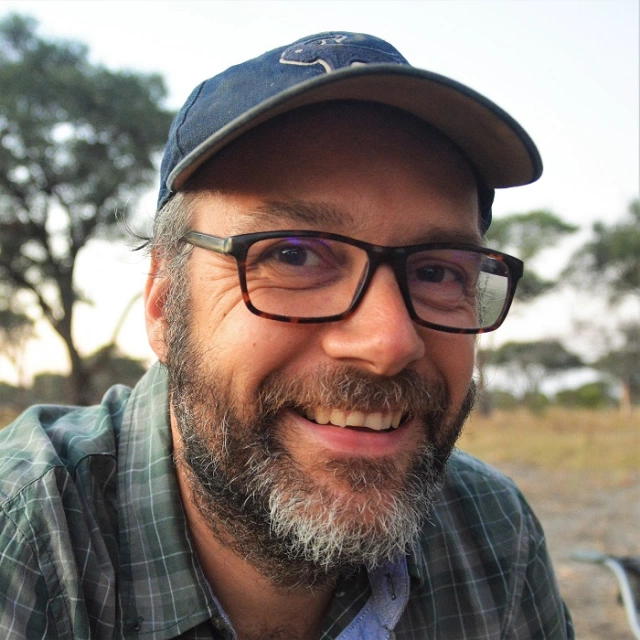
Keywords
Biography
I am most interested in the ecology and behavior of predators in human- or livestock-dominated areas, and in developing and evaluating tools to reduce human-wildlife conflict. Other interests include animal communication, and most recently in applying this to managing carnivore movements. Overall I am interested in research underpinning conservation management.
My Qualifications
PhD Zoology (University of Cambridge,...view more
I am most interested in the ecology and behavior of predators in human- or livestock-dominated areas, and in developing and evaluating tools to reduce human-wildlife conflict. Other interests include animal communication, and most recently in applying this to managing carnivore movements. Overall I am interested in research underpinning conservation management.
My Qualifications
PhD Zoology (University of Cambridge, 2009)
MSc Zoology (University of Stellenbosch, 2005)
BSc(Hons) Zoology (University of Manchester, 2000)
My Research Activities
The underlying motivation for my research program is to produce research and evidence that contributes to wildlife management, particularly addressing human-wildlife conflict, a key driver of carnivore decline globally. Details of my carnivore conservation research can be found here on my website, including carnivore conservation research in Botswana, in collaboration with Botswana Predator Conservation, and encompassing conservation ecology and applied conservation programs, particularly focused on large carnivores including African wild dogs, lions, leopards, and hyaenas.
In Australia, my Myall Lakes Dingo Project, supported by the Hermon Slade Foundation and Taronga Conservation Society Australia, aims to develop and test non-lethal tools for dingo management.
I also conduct research in reintroduction biology, specifically focusing on a Greater bilby breed-for-release program at Taronga Western Plains Zoo (where I am based), and reintroduction and rehabilitation of wildlife more broadly.
My Research Supervision
Areas of supervision
Behavioural Ecology
Applied Animal Behaviour
Animal Communication
Conservation Ecology
Human-wildlife conflict
Mammal Ecology
Carnivore Ecology
Currently supervising
Cameron Radford (PhD Candidate) - “Evaluating signal-based tools to reduce conflicts with Africa’s large carnivores” (Primary Supervisor; co-supervised by T Rogers).
Kate Cornelsen (PhD Candidate) – “Conservation ecology of reintroduced Greater bilbies ” (Primary Supervisor; co-supervised by R Kingsford, A Elphinstone).
Benjamin Walker (PhD Candidate) – “African leopard communication and movement ecology” (Primary Supervisor; co-supervised by T Rogers, E Bennitt).
Lucy Ransome (PhD Candidate; Griffith University) - “African wild dogs: social behaviour and movement in a fugitive carnivore”. (Principal Supervisor [external], with D Jones, H McCallum (Griffith University), A Goldizen (University of Queensland)).
Rethabile Setlalekgomo (MPhil Candidate; University of Botswana) – “African leopard population monitoring techniques” (Co-supervisor [external] with E Bennitt)
Victoria Inman (PhD Candidate; UNSW) - “Hippos as ecosystem engineers in the Okavango delta, Botswana” (Secondary Supervisor with K Leggett, R Kingsford).
Anna Lewis (PhD Candidate; UNSW) - “Tasmanian devil diet” (Secondary Supervisor with T Rogers).
Brendan Alting (Hons Candidate; UNSW) – “The characteristics and consequences of African wild dog (Lycaon pictus) den site selection” (Primary Supervisor; Co-supervised by Hayley Bates, Ben Pitcher)
Callum Price (Hons Candidate; UNSW) – “Dingo spatial and temporal activity patterns” (Primary Supervisor; Co-supervised by Hayley Bates, Ben Pitcher, Andrew Elphinstone)
My Engagement
Coexistence Director of Botswana Predator Conservation
Member Human-Wildlife Conflict Working Group in Botswana
Member Carnivores Botswana
Member, Research Committee, The Carnivore Conservancy
My Teaching
BIOS6671- Biodiversity and Conservation of Natural Resources
The course covers applications of community ecology, population biology and genetics to the management of natural resources, environmental problems and conservation of biodiversity. Principles are conveyed using examples from terrestrial and marine flora and fauna, with a focus on the nature and importance of biodiversity, and the design and management of programs for the conservation of species and ecosystems. The course includes an in-depth field component studying the tools and practicalities of reintroduction biology- and focusing on a Greater bilby breed-for-release program at Taronga Western Plains Zoo. This course is co-convened by Dr Neil Jordan and Dr Teagan Gale.
BIOS6723- River Basin Ecosystem Management (Botswana)
This is an intensive field course (10 days, 6 unit of credit course) focused on the management of one of the world’s most spectacular ecosystems – the Okavango Delta World Heritage site in Botswana. Upstream pressures to build dams and withdraw water threaten the entire ecosystem. In this course, we partner with Kings College London and Arizona State University (our PLuS Alliance partners) and the University of Botswana,resulting in a diverse mix of students and competition for the few places available (last year 6 UNSW students). The course is jointly coordinated by Professor Richard Kingsford, Dr Neil Jordan and Dr Keith Leggett from BEES and also academics from Arizona State University and Kings College London.